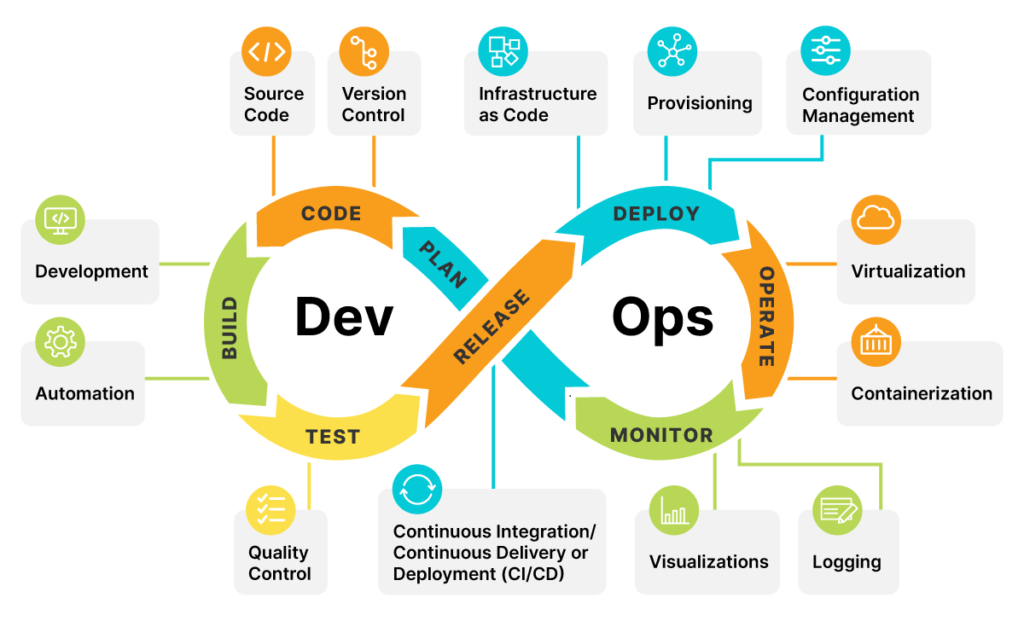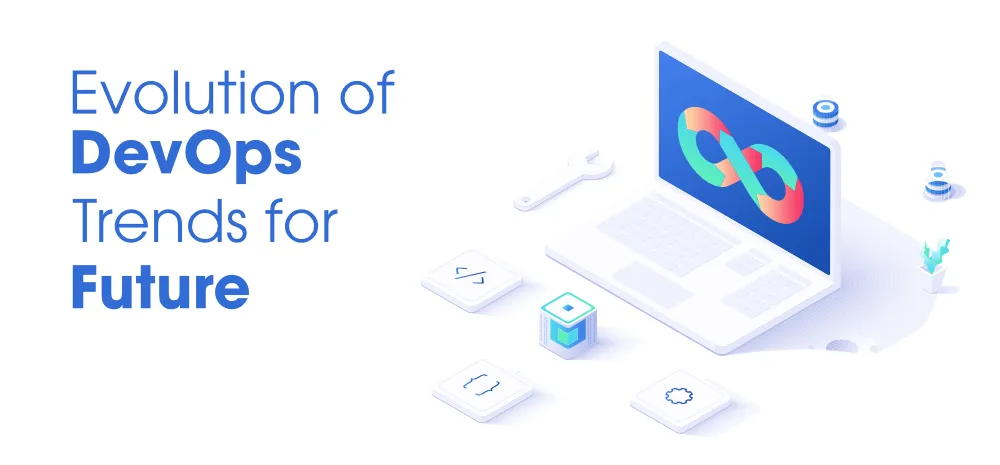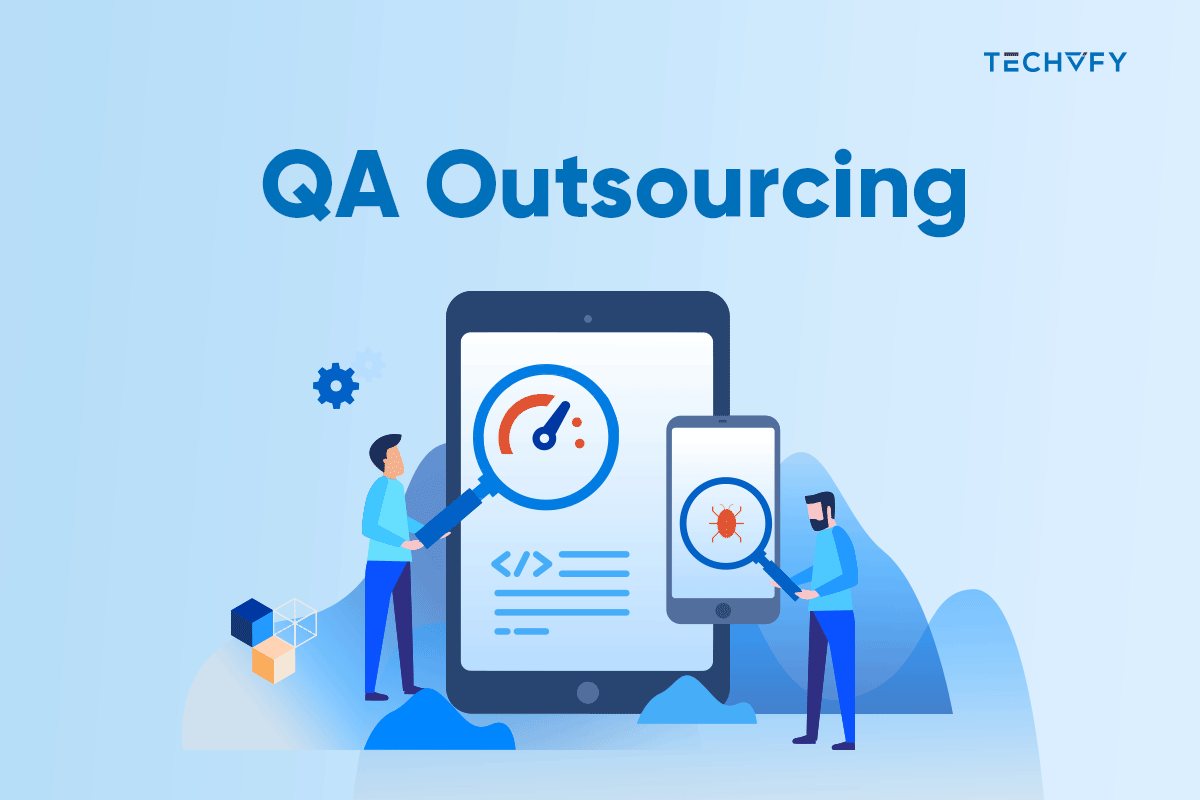Predicting DevOps Future in Upcoming Years
- David Ho
- 0 Comments
DevOps started in 2009 as an idea to make teams work better together. Over ten years, it has changed from an idea to a common working method, where everyone knows their job and expectations.
However, what companies expect from a DevOps worker can differ from place to place. As technology and working methods change quickly, the DevOps future becomes hard to tell. Because of this rapid change, even talented people looking for jobs sometimes feel a bit lost.
Importance of DevOps in The Current Technological Landscape

DevOps brings together the people who create software (Dev) and those who keep it running smoothly (Ops). This teamwork approach helps make app-making faster and taking care of them more straightforward. By getting everyone on the same page, including other teams in a company, DevOps helps work move quickly and in small, easy-to-manage steps. It focuses on suitable methods, intelligent tools, and setting up systems. This isn’t just about fancy tech; it’s about how everyone works together. Starting points often involve keeping software updated, watching for issues in real time, dealing with problems promptly, and using platforms where teams can talk and work together quickly.
What does DevOps bring to organizations?
- Boosts Efficiency: Businesses achieve goals more efficiently by bringing everyone together and automating tasks.
- Sees the Bigger Picture: DevOps ensures the whole business improves based on actual needs and data instead of focusing on just one part.
- Fast and Reliable Software: DevOps ensures quicker and more dependable software creation and release, ensuring it’s always available for users.
- Centers on People: Success in DevOps hinges on the right people. They drive the change, ensuring everything runs smoothly and adapts as needed.
More new technology articles at TECHVIFY you might want to check out:
The Current State of DevOps and Challenges it’s Facing.
The current trends of DevOps
DevSecOps
Businesses use DevSecOps to enhance security from the start of a project. For instance, Pokemon Go collaborated with Niantic and automated security checks to ensure young users’ safety.
Serverless Computing
Apps can run without focusing on servers. Autodesk, for instance, adopted serverless tools and reduced account setup time from weeks to minutes.
Microservice Architecture
Big apps are split into smaller parts for easier management. Coca-Cola adopted this to make its processes more efficient.
AIOps
AIOps automates IT tasks, and MLOps improves machine learning systems. DRYiCE IntelliOps by HCL, for example, uses AIOps to offer proactive services.
Low Code Applications
Low-code tools enable app building with minimal coding. This speeds up software creation and simplifies processes.
GitOps
GitOps enhances infrastructure control and automation. Mettle used it to introduce new features without security issues quickly.
DevSecOps Challenges
DevOps aims to change how organizations work. But changing isn’t easy. Most companies find it more challenging than they first thought. A study by Gartner found that most DevOps efforts didn’t achieve their goals because of organizational changes and learning.
Senior Director Analyst Gartner says: “Organizational learning and change are key to allowing DevOps to flourish. In other words, people-related factors tend to be the greatest challenges — not technology”.
Measuring Success
When moving to DevOps, knowing if things are going well is essential. That means picking the right things to measure. Forrester reminds businesses that doing things faster is only enough if the quality improves. Yet, many need help to choose the right things to track. A good starting point? Focus on measures linked to speed and results.
Budget and Other Hurdles
Changes in DevOps need resources. However, many companies need more money or old IT systems. A survey by Pensa highlights some top challenges:
- Not enough budget
- Dealing with old IT systems
- Complex applications
- Juggling multiple work settings
- Company values and mindset
The Problem of Complexity
Adopting DevOps can be a complex task. Leaders might need help explaining why it’s essential. And it’s not just about tools and tech. It’s about the people, too. Can teams let go of old ways, learn new ones, and work together?
Avoiding Pitfalls
There are many ways a DevOps effort can stumble. Some common mistakes are setting goals too high, not measuring the right things, or needing to commit to the DevOps mindset fully. For success, it’s crucial to avoid half-measures and ensure everyone is on the same page.
Upcoming DevOps Future Trends
While there might be new tools and ways to organize in the future of DevOps, its main goal won’t change.

1. Emphasis on Automation
DevOps will lean more into automation. With the help of AIOps, which includes techniques like machine learning and anomaly detection, operations will become smoother. AIOps will redefine the way IT teams manage problems and alerts. It’s an essential piece in the upcoming DevOps landscape.
2. Making Services More Reliable with AIOps
AIOps uses data and models to provide valuable information from it. This means that services can be more reliable and have fewer downtimes. With AIOps, DevOps teams can analyze information in real-time, detect problems before they grow big, work together better, deploy faster, and do much more.
3. Turning Attention to the Cloud
DevOps will also pay more attention to making the best use of cloud technology. Using the Cloud makes it easier for DevOps to test and deploy because everything is in one place. David Linthicum from Deloitte Consulting pointed out the value of the Cloud for DevOps.
Best Practices in DevOps for Your Organizations
Based on current market observations, let’s discuss some future projections for DevOps:
Use of Microservices and Containers
Many software companies are using microservices structures to create standalone enterprise solutions. Additionally, containers are becoming more common because they efficiently run individual tasks and are simple to deploy.
Importance of Culture
Culture is fundamental in DevOps. For DevOps to be successful, it’s not just about the process but also the culture. A good DevOps culture helps companies to be more flexible and work collaboratively, ensuring the best outcomes. Embracing this culture can speed up success and create a constant learning environment for positive results.
Early Problem Detection
DevOps promotes detecting issues early on. Automation in DevOps tools improves tracking. Instead of finding problems later in the process, the aim is to see them earlier. This approach not only improves performance but also prepares better for unexpected challenges.
Reduced Downtime
Embracing DevOps has many advantages. It helps companies improve service quality and ensures systems are running smoothly. Top-performing IT groups that use DevOps can deploy up to 200 times more quickly. This switch also results in quicker recovery times when things go wrong.
Combining DevOps and Big Data
When DevOps pairs with Big Data, there’s a push towards predictive insights. This combination makes DevOps a strong choice for automating tasks and configurations.
Conclusion
The DevOps future continues to evolve, proving its value in streamlining IT operations and ensuring reliable software deployment. As we’ve observed, it’s not just about the technology or tools, but the culture and collaboration of the people behind it. From enhancing security with DevSecOps to the rising importance of AIOps and the significant role of cloud technology, DevOps remains integral in reshaping how companies operate in the digital age. As we move forward, it’s evident that adapting and investing in these trends will be crucial for businesses.
If you’re looking to navigate this transformative journey efficiently and harness the power of cutting-edge DevOps practices, look no further.
Contact TECHVIFY today and let our experts provide you with the best DevOps services tailored to your organization’s needs.




